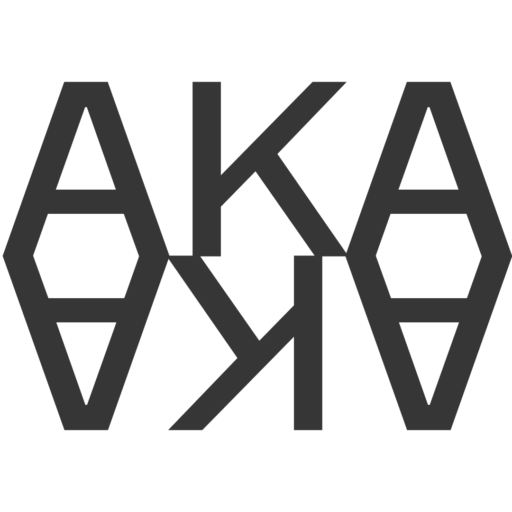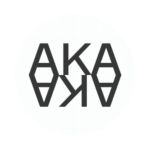KYC & AML Policies
Last updated: October 13, 2020
We are in the process of retrieving legal advice on future obligations which are proposed to be imposed under the General Scheme of the Criminal Justice (Money Laundering and Terrorist Financing) (Amendment) Bill 2019 (“Bill”), which, once signed into law, will transpose the Fifth Anti-Money Laundering Directive (“5AMLD”) in Ireland.
AKA Blockchains has implemented a comprehensive AML & KYC Policy. This decision reflects the company’s desire to prevent money laundering activities.
- The AML & KYC Policy covers the following areas:
- Risk-based approach to AML/CFT
- Customer Due Diligence (“CDD”)
- Policies, Controls & Procedures (PCPs) to prevent and detect ML/TF
- Monitoring and reporting of suspicious transactions;
- Record keeping obligations
AKA Blockchains™ asks individuals to be aware of the following:
Know Your Customer (KYC)
Customer due diligence (“CDD”)
One of the international standards for detecting and preventing illegal activity is customer due diligence (“CDD”). In accordance with CDD, AKA Blockchains has established verification procedures within the standards of AML/KYC frameworks.
In order to use our services, the following information needs to be verified:
- Mobile phone number
- Proof of identity (Driver’s license or passport)
For all Identity documents we ensure the following:
- The document is valid and shows the issue and expiry dates
- The photograph is clear and all features are visible
- The page showing signature is included
- The place of issue and passport number details are included and are clearly legible
- Nationality details are included
Additionally, we capture and store information from identity documents, including, but not limited to:
- Document number
- First name and last name.
- Date of birth.
- Gender.
- Country.
- Citizenship.
- Address
AKA Blockchains reserves the right to verify the user’s identity on an on-going basis and may request up-to-date scanned copies of documents from any registered user, even if the user completed identity verification in the past.
AKA Blockchains will conduct enhanced due diligence (EDD) for those members presenting higher risk, such as Politically Exposed Persons (PEPs).
Enhanced Due Diligence
AKA Blockchains reserves the right to subject members to an Enhanced Due Diligence (EDD) Procedure, in the event AKA Blockchains is obligated by law to do so or when it has reason to believe (EDD) Is necessary for entering into a business relationship with a member.
EDD procedures encompass, among others: video verification, an inspection of supporting documents for proof of identity or address, checking against sanctions list and establishing whether the member is a politically exposed person.
Customer Due Diligence for companies and other institutional Members
For non-natural persons, we conduct Enhanced Due diligence ( EDD) and will request additional information and documentation.
For natural persons, information requested includes, but is not limited to:
- Proof of identity (Driver’s license or passport).
- Proof of business address (within the last 3 months).
- Source of income.
For non-natural persons, the information we request includes, but is not limited to:
- Proof of business address (within the last 3 months).
- Certificate of incorporation and memorandum and articles of association.
- Full CDD documentation on each director.
- Full CDD documentation on each ultimate beneficial owner of more than 20% of the company’s share capital. Where there are corporate shareholders, documentation confirming the identity of the ultimate individual beneficial owners must be provided.
- Source of income.
Anti-Money Laundering
We actively monitor transactions to ensure that no money laundering is taking place.
- We apply due diligence to our members. We request that all members register with us (i.e. confirm their email addresses).
- For purchases greater than €1000 and up to €10000, we request proof of identification certificate and proof of residential address documentation.
- We will report any suspicious activity to An Garda Síochána and the Irish Revenue Commissioners.
- We take active steps to stop users from abusing the limits we set,
- Setting strict time limits between starting and completing trades and
- Cross-referencing information received from banks concerning account names.
- We protect against man-in-middle attacks.
“AKA Blockchains” is a brand under a registered business in Ireland and therefore operates under Irish law. ‘AKA Blockchains’ complies with the ‘Criminal Justice (Money Laundering and Terrorist Financing) Act 2010 Guidelines On the prevention of the use of the financial system for the purpose of money laundering and terrorist financing. February 2012.
Risk-based approach to AML/CFT
Our AML Policy is “risk-based.” That means that the AML policies, procedures and internal controls are designed to address the risk of money laundering specific to our company and operations.
Policies, Controls & Procedures (PCPs) to prevent and detect ML/TF
We have designed a structured system of internal controls in order to comply with applicable AML & KYC laws and regulations, some of which are outlined in this Policy including, but not limited to, our Transaction Limits, Customer due diligence(“CDD”), filing Suspicious Activity Reports (“SARs”), as well as other requirements and audits.
Monitoring and reporting of transactions
The Company uses member transaction monitoring as a risk‐assessment and suspicious activity detection tool. If a transaction is inconsistent with a members’ known personal activities or personal habits, this transaction may be considered suspicious. Data and transaction monitoring tools are used to identify uncommon patterns of members’ activity. After review and investigation. We will report any suspicious activity to An Garda Síochána and the Central Bank of Ireland (CBI).
Record Keeping
Record keeping helps the company deal with its reporting obligation in submitting documents where we deem there to be a suspicion of money laundering or terrorist financing. All records are retained for Years (2) years and are available upon official request by an authorised examiner, regulator, or law enforcement agency.
Notes
5AMLD: Directive (EU) 2018/843 on the prevention of the use of the financial system for the purposes of money laundering or terrorist financing. 5AMLD entered into force on 9 July 2018 and is required to be transposed by the Member States by 10 January 2020. The
Bill was approved by the Irish Government on 3 January 2019. The Bill can be accessed here
http://www.justice.ie/en/JELR/Pages/General_Scheme_-_Criminal_Justice_(Money_Laundering_and_Terrorist_Financing)_(Amendment)_Bill_2019

